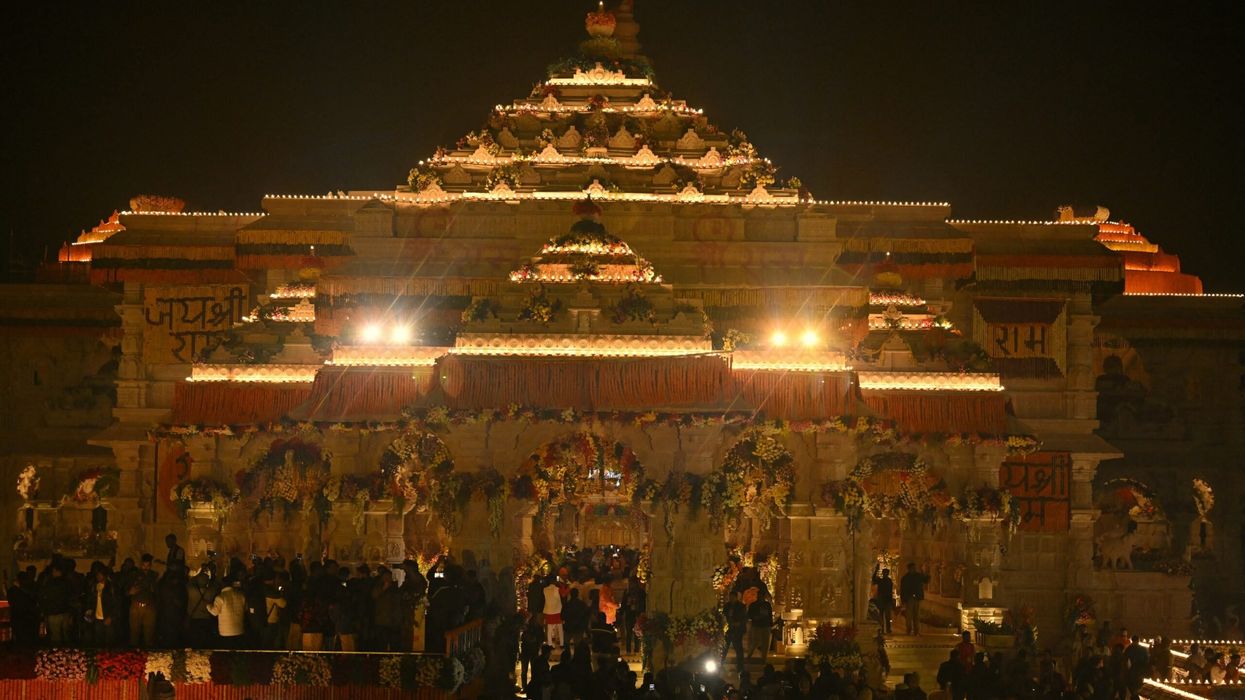DEAR Divine Souls,
As the sacred light of Diwali shines upon us, I send you all my deepest love and blessings. May the divine flame of this festival illuminate your hearts, homes, and lives with peace, prosperity, and grace.
Diwali is not just the commemoration of a historical event – the return of Bhagwan Ram to Ayodhya – but a timeless reminder of the dharmic principles He stood for: righteousness, compassion, and sacred duty. When the people of Ayodhya lit lamps to welcome Bhagwan Ram back home, they weren’t just celebrating His return; they were ushering in Rama Rajya – a new era of peace, justice, and harmony.
This year, we witnessed the fulfilment of a 500-year dream as Bhagwan Ram was finally re-installed in His grand temple in Ayodhya. This profound moment calls on all of us to reflect on what it truly means to bring about Ram Rajya today. Ram Rajya is not a relic of the past; it is our collective responsibility to create a world rooted in righteousness, integrity, sustainability, justice, equality and unity.
As we light our diyas this year, we must also ignite the flame of responsibility within ourselves. Our world faces grave challenges – climate change, environmental degradation and social injustice. These are not isolated issues, but symptoms of a deeper disconnection from our dharma. Bhagwan Ram’s victory over Ravana symbolises more than the triumph of good over evil; it calls each of us to vanquish the 10-headed demon within ourselves – our ignorance, ego, greed, envy and apathy – that lead to our own suffering and cause us to bring suffering unto others.
Mother Earth, our beloved Prithvi Mata, is crying out. From devastating floods and wildfires to rising temperatures, the signs are everywhere: we have abandoned our sacred duty as stewards of this planet. Our scriptures teach us to honour nature as divine, yet we continue to exploit and harm the very earth that sustains us.
The time has come to live as true guardians of this earth. The problem is not external – it is us. And so, we must also be the solution.
This Diwali, let us commit to a new kind of light – the light of sustainable living. Let us reduce our waste, eliminate single-use plastics and consume mindfully. Let us honour the gifts of Mother Earth by treading gently on this planet. True abundance does not lie in what we accumulate, but in how we protect and nurture the resources we have been given. Clean air, fertile soil, and pure water – these are the real riches, the true blessings of Maha Lakshmi. If we continue to destroy them, no amount of material wealth will bring us peace or happiness.
HH Pujya Swami Chidanand SaraswatijiAs we worship Maha Lakshmi, the goddess of prosperity, let us also remember that Her divine presence is not confined to the temples or altars. She lives in the women around us – our mothers, sisters, daughters, and wives. Yet, in too many homes and communities, these divine embodiments of Lakshmi are subjected to violence, exploitation, and oppression. How can we truly honour the goddess if we turn a blind eye to the suffering of the women in our lives?
Violence is not just something that happens in distant war zones – it occurs in our homes, neighbourhoods, offices and societies. From the ongoing wars and conflicts to the silent violence of domestic abuse, exploitation, discrimination and inequality, the shadow of suffering is wide. If we are to truly celebrate Diwali, and worship Maha Lakshmi, we must commit to ending this darkness in all its forms.
To worship Maha Lakshmi means to protect, uplift, and honour every woman and girl. Let us pledge to create homes, companies, communities and societies where respect, dignity, and equality flourish.
Ram Rajya is not just the reign of the divine king Ram; it is a way of life. It is a world where righteousness prevails, where compassion guides our actions, and where freedom, justice and peace are available to all. It is a world each of us must help create, starting with our own minds, hearts and homes. As Bhagwan Ram’s new temple stands tall in Ayodhya, let it serve as a reminder that the real temple we must build is one of love, integrity, and sustainability within our hearts and communities.
So, as we celebrate Diwali this year, let us not just light lamps of celebration, but also lamps of responsibility. Let us carry the flame of justice, peace, and sustainability into every aspect of our lives. May the light of this Diwali inspire us to live with greater awareness, love, and commitment to the well-being of all.
Whenever you come home to India, be sure to come home to Rishikesh, to Parmarth Niketan, your home on the banks of Mother Ganga and in the lap of the Himalayas.
We also invite you to join us for the Maha Kumbha Mela in Prayag Raj in January-February 2025. Come and have a sacred bath in the Triveni Sangam.
With love and blessings, Swami Chidanand Saraswati, president, Parmarth Niketan, Rishikesh.




